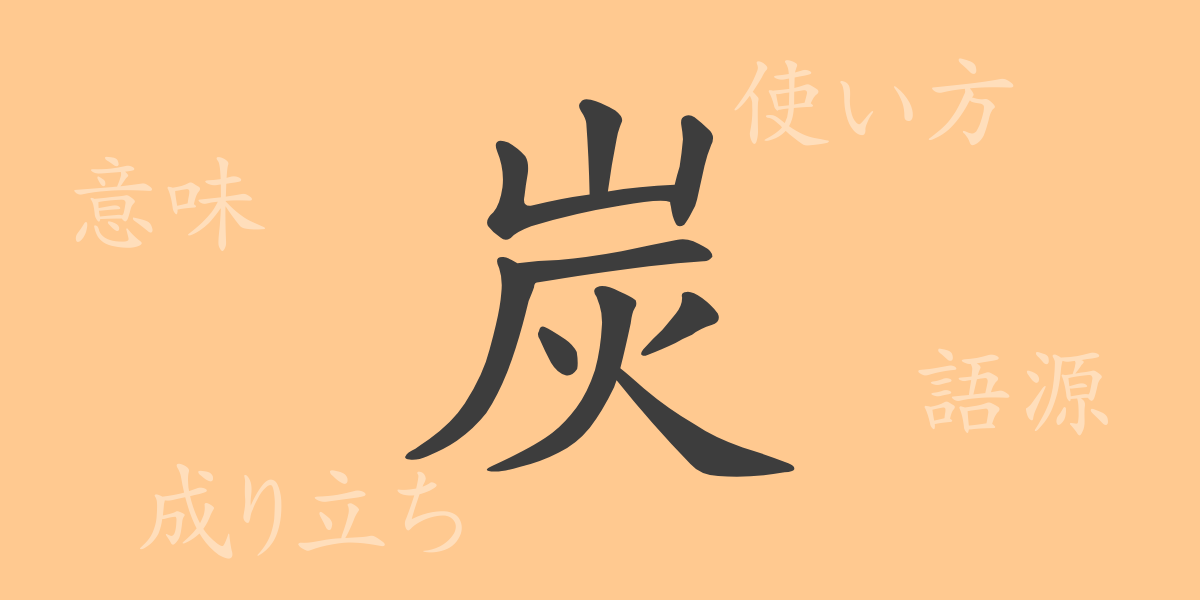The kanji “炭” (タン) (tan) not only transcends its role as mere fuel but also deeply roots itself in Japanese culture and language. This article delves into the profound world of the kanji “炭”, exploring its origins, various uses, and its significance in the lives of the Japanese people.
Origins of ‘炭’ (タン) (tan)
The kanji ‘炭’ depicts the process of wood being burned and turning black, originating from ancient China. Historically essential as a fuel and heat source, charcoal forms when wood undergoes incomplete combustion, turning its woody parts into carbon. The character ‘炭’ evolved from pictographs representing burning wood, symbolizing human wisdom in mastering fire and the evolution of life practices.
Meaning and Usage of ‘炭’ (タン) (tan)
Commonly, ‘炭’ refers to the carbon-rich black solid material used as fuel. Metaphorically, it also denotes an extremely black color. In everyday life, charcoal is utilized for various purposes, from being the fuel for barbecues to a heat source for kotatsu during winter, and even as activated charcoal for purifying water and air.
Readings, Stroke Count, and Radical of ‘炭’ (タン) (tan)
The kanji ‘炭’ is widely used in Japan as a common character, and understanding its readings and structure is vital for learning Japanese:
- Readings: On’yomi ‘タン’ (Tan), Kun’yomi ‘すみ’ (sumi)
- Stroke Count: 9 strokes
- Radical: 火部 (ひへん) (hihen – fire radical)
Phrases, Proverbs, and Idioms Using ‘炭’ (タン) (tan) and Their Meanings
There are numerous idioms, proverbs, and phrases involving ‘炭’ in Japanese, reflecting the lifestyle, values, and history of its people:
- 炭をもって火を焚く (すみをもってひをたく) (sumi wo motte hi wo taku) – An allegory for undertaking unnecessary effort.
- 炭にかける水 – Refers to ineffective efforts or wasted endeavors.
- 炭坑節 (たんこうぶし) (tankoubushi) – A folk song about the lives of coal miners.
Summary on ‘炭’ (タン) (tan)
The kanji ‘炭’, despite its simple form, has profoundly impacted Japanese life. Its role as a source of heat is well-known, but it also carries diverse meanings within the language and culture, resonating deeply with the Japanese people. Through this article, we hope you have gained insight into the multifaceted nature of ‘炭’ and how it integrates into daily life in Japan.

























